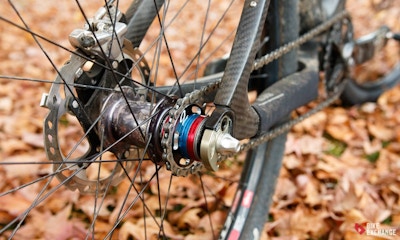If we go back three years to 2012, Statistics New Zealand lists the rate of obesity in this country as at 28.4 percent of the population for people over the age of 15. In 2012 nearly a third of all kiwis surveyed were considered obese based on their body mass index.
The rising availability and lowering cost of high energy, ready-to-eat fast foods has led to an unhealthy generation of kiwis, many of whom are dealing with problems associated with their own excess body fat.
"Some digital scales only have a range that goes up to 150kgs – and my scales showed this error message. I had gone over the 150kg line."
Aaron Bleakley has had a strong connection to the bike for most of his life. He remembers getting his first BMX which his Dad gave him just before his eighth birthday – this was when BMX bikes were just coming on the scene in New Zealand, in the early eighties. He remembers riding his BMX “…all over the place. It was kind of like my version of exploring back then”.
Cycling was just something Aaron sort of fell into.
“I played rugby and cricket through to fifth form, you know when I was 15, 16, but you know to be a good junior cyclist, it takes quite a lot of time and effort, and I was never really that good at cricket or rugby so I started to focus on cycling.”
Whether he was good at sports or not is one thing, but he was definitely an active, fit young man.
In 2001, Aaron was competing in a local mountain biking race and he was doing quite well, confident that he could even win the race.
“I got a bit carried away with my abilities on one particular descent and collected a tree…and this is only an estimate, but it was well over 40 kph and I reckon closer to 50.”
Aaron broke his pelvis and spent a great deal of time away from work trying to rehabilitate; to get back to a point of normality, and to hopefully get back on the bike.
Too much time away from work led to Aaron losing his job, and when he tried to ride again, he found he was in a huge amount of pain. One of his legs was now permanently shorter than the other.
"I just kept on eating like I was a competitive cyclist."
See also: Cramping? Gut-aches? You need a sweat test...
“And what happened over time was, the quality of the food I was eating got worse and worse as the career got better and better. Spending more and more time at work, you start making poorer food choices. In the last year before I made the scales error – you may or may not know that some digital scales only have a range that goes up to 150kgs – and my scales showed this error message. I had gone over the 150kg line.
At that point I was on ten Red Bulls a day; McDonald’s for breakfast, lunch, and pizza for dinner – just really a huge volume of food. And because I’m six-two, I didn’t realise until I was 120 kilos or so that I was getting quite fat. Then at 130kgs you’re kind of aware of it, and you get stressed and life isn’t really that good.”
Transforming from a competitive cyclist into someone who is effectively carrying twice the weight of a healthy person for their age can have drastic negative impact on one’s state of mind.
Aaron said he struggled with mental health issues during this time, but it was the ‘error’ on the scales that really tipped him over.
At that time, Aaron was living in Auckland; living what he called the “rat race.” He and his wife at the time decided that Auckland wasn’t a healthy environment, so they moved way down south to Dunedin to experience life at a slower pace — to spend less time in traffic.
“When you finish work past five o’clock in Dunedin you’ll know about it. Whereas in Auckland, I was waking up at 5.30 in the morning, driving an hour and a half to work, working till 6 o’clock, driving for an hour and a half home – you don’t have time.”
In Dunedin Aaron decided to start riding the bike again, but it wasn’t quite as simple as jumping back on the saddle. When you weigh 150kgs, Aaron said, “you can’t really ride a bike properly; theoretically you can, but it’s really hard.”
When one of Aaron’s mates moved down to Dunedin and started working as a salesman at the local Les Mills gym, he saw it as an opportunity to start slowly losing the weight. Aaron would go and do what he called “an hour of power.”
"It was nothing fancy, just really good, homemade food…"
“I would go in and absolutely smash myself…for an hour. It was something that was achievable and consistent, and I got those feelings back – endorphins, or whatever you want to call it – again, and at the same time I started eating heathier. It was nothing fancy, just really good, homemade food…instead of diets and all that I just ate good, well-made food.”
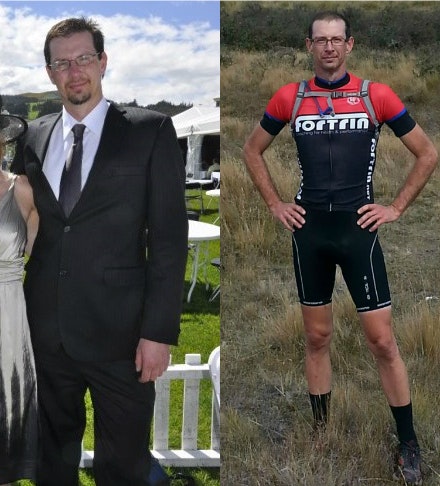
But while Aaron might have been able to make these changes largely on his own, not everyone who finds themselves in a similar situation has the knowledge or the skills to immediately start exercising effectively and cooking quality home-made food. This is where Aaron stresses the importance of seeking help from a nutritionist and a dietician.
“Nutritionists are worth their weight in gold, and for someone who is at 150kgs like I was, it’s so important to see a dietician. At that weight I was at risk of type 2 diabetes and heaps of other problems. And I was lucky because I knew how to make the food I needed to eat and knew what to shop for, whereas some people might not know what to buy, and how to make good food. So to say to someone, ‘go and buy the ingredients to make a salad’ and expect them to make something that doesn’t taste bad is sometimes unrealistic. Those are skills that nutritionists and dieticians can teach people that are invaluable.”
Aaron started slow. He began by building a mountain bike from second hand parts – he made it a little project for himself – and when it was finished would go out and do ten minutes around the local bike park, pack it up in the boot of the car and drive home. He would go out the next day and do it all over again. He said he did this for months, but after about six, he reckons he had lost 40kgs.
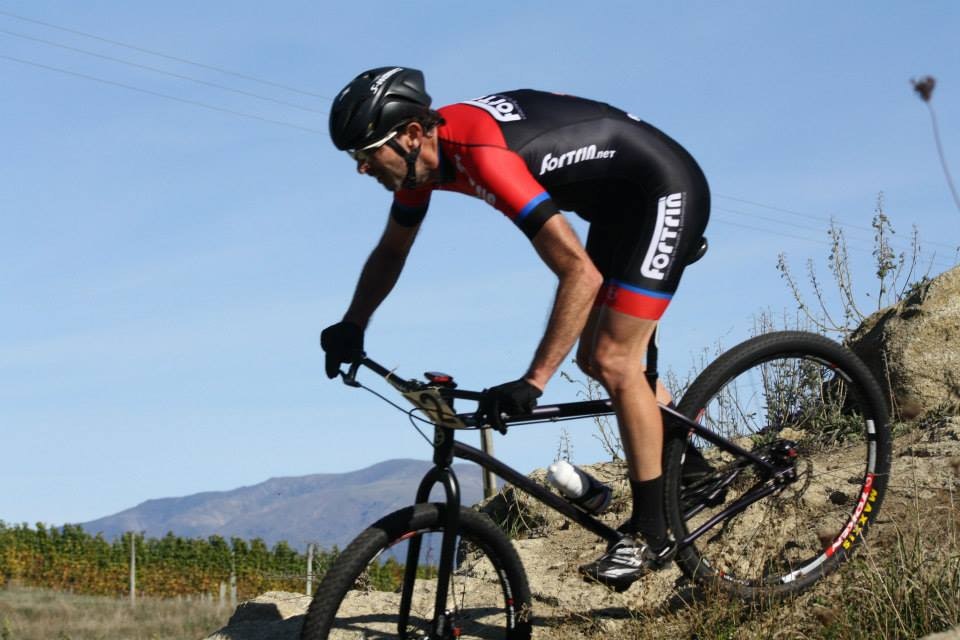
Interestingly, while he was eating good food as opposed to his usual 10-Red-Bulls-and-McDonalds-for-every-meal daily menu, he never reduced his portion size much. For Aaron, what worked was just good old fashioned wholesome foods and plenty of exercise.
Having dropped 40kgs, Aaron saw the opportunity to get back on a road bike: mountain bike terrain put a lot of stress on his legs and back which have never been quite the same since his crash.
Working in Invercargill on the weekdays, he would go out for rides after work in the evenings. One of the bonuses of living down south is that your late night chocolate cravings aren’t so easily satisfied.
“If I wanted some chocolate, I would have to physically leave the house and go and buy it. Dunedin can be a very cold place. When you get those cravings, the last thing you want to do is go out into sub-zero temperatures and buy a chocolate bar.”
Aaron decided to reward (or punish) himself by entering a local club race. He got dropped after the first two kms and struggled through the next forty; but he crossed the line and hasn’t looked back since.
"So, how much do you weigh now, if you don’t mind me asking?"
Aaron laughed into the receiver, “I’m generally between 70 and 75kgs these days...
I’m half the man I used to be.”
It takes a while to lose half your body weight. The initial loss is always a lot more drastic: Aaron remembers sitting at around 100 for a long time.
All that while he was completely changing his life in other ways. He decided to go back to Uni and study to become a coach, something that he had always wanted to do. But the pressures of following a career based on his performance at high school had taken him in a different direction into the field of engineering.
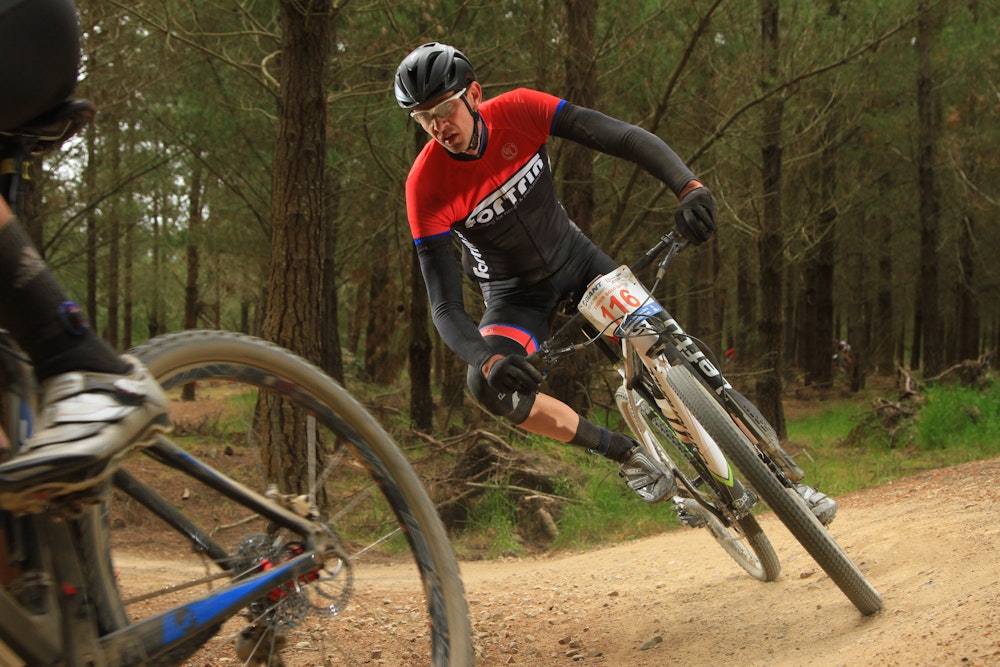
See also: Debunking sports nutrition myths...
Going back to Uni as an adult student is difficult for anyone, but Aaron found that it taught him a lot, not only how to get by on a much lower income, but about himself as a rider.
“I had half-arsed my cycling before I lost the weight. I had to suffer trying to lose the weight, and I realised how much I had missed cycling when I got back on the bike. That changed how hard I could push myself.
Any time I think to myself, ‘I don’t really feel like going for a ride’ I think back to that stage in my life when I couldn’t ride. So I’ll go out and even if I don’t want to push myself, I can just have fun.”
He’s been competing again for a while now. In his words, these days he’s a “fast old guy” — a fast old guy who wins races: he recently won his local cyclocross series, and he’s hoping to do it again.
But he is not without legacy from his accident and subsequent weight gain. Aaron still has trouble with his back (core exercise is the key to reducing the pain), and he has a lot of excess skin that won’t go away without surgery. But he says he’s “…not going to waste the money on that: it’s just a good reminder of what I used to be and where I am now.”
"These days I'm a fast old guy."
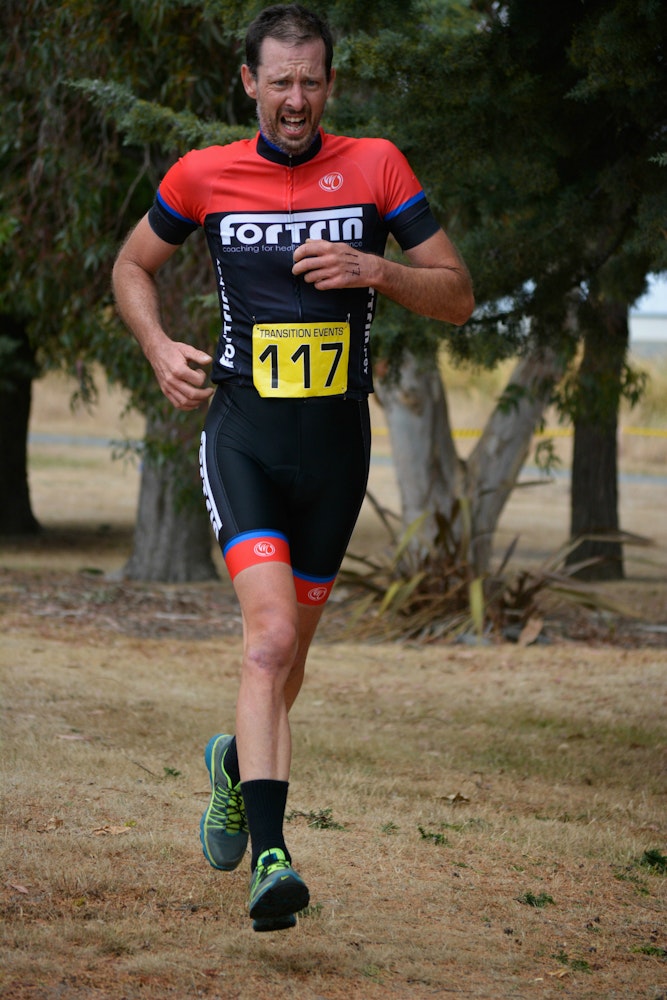
See also: Don't forget to train your nutrition
Aaron now runs Fortrin Coaching out of Marlborough training athletes in various cycling disciplines, running and multi-sport. He works closely with junior riders and under 23’s – one of his students Shannon Hope is competing at the Mountain Bike World Champs this year.
Weight can be a tough subject to tackle when it comes to young riders. Some of the more competitive kids might be looking for anything to give them that edge over the competition, even if it means shedding a couple of kilos. But Aaron is careful about how he approaches the issue with riders under the age of 20.
“You know, maybe they could be 5kgs lighter but they don’t need to be 5kgs lighter. The last thing I want my athletes to be worrying about is that they are too heavy for their sport when they are 17 or 18 — they shouldn’t need to worry about that.”
The Half-Man of Velo, as I now like to call him, has surely proven not only to himself, but to the athletes he coaches, just what you are capable of when you really want to change something about yourself.
Aaron Bleakley has had an affinity with the bike for most of his life, but having spoken to him about his battle with weight gain, it sounds like nothing could keep him from riding.
“For people who want to lose weight and be healthy, I always say you need to find your thing. People need to find what really interests them. And if they can find their thing, then that’s going to give them the motivation to achieve their goals, whatever they might be.”
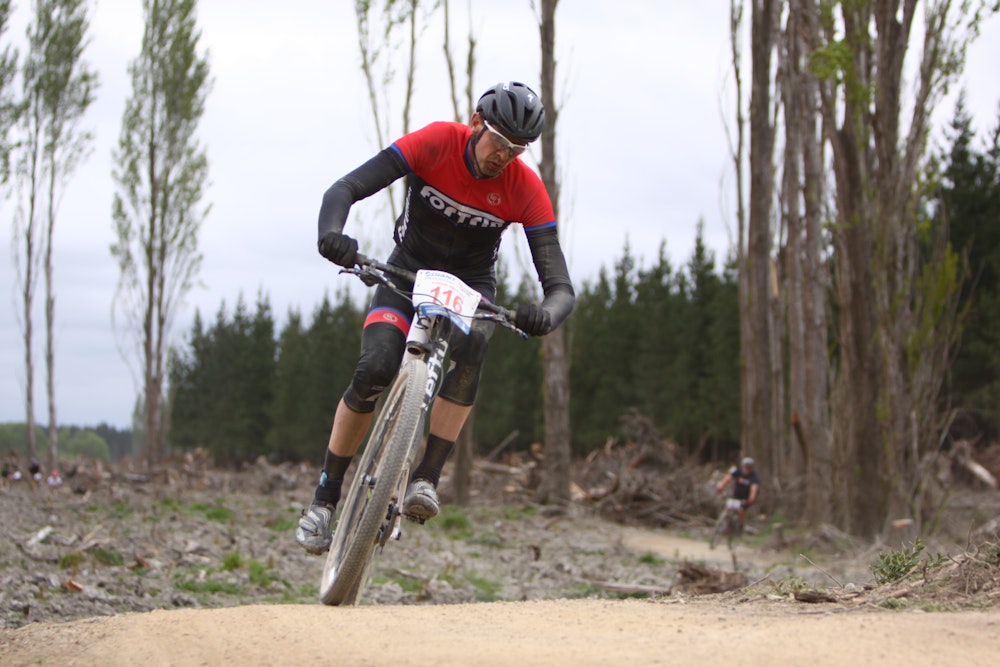
Photo credits: Marathon.com and Mark Grammer
Keep up with news, reviews, and read more amazing stories of people connected to the bike - follow us on Facebook or subscribe to get our regular email



